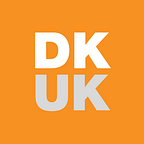How did you get into Data Science?
In honour of Ada Lovelace Day, an international celebration of the achievements of women in science, technology, engineering and maths (STEM), we asked women in our community of data scientists two questions: How did you get into data science? and Is there a woman who inspires you in what you do?
Jen
Jen is an Implementation Lead for Data Visualisation at a financial services firm.
How did you get into data science?
I’ve worked in financial services for 20 years, but in operations, processing payments and trades. I got seconded on to a digital transformation project and ended up on an initiative around data visualisation. I honestly had no clue what it was at first, and didn’t really care as it wasn’t something that seemed to instantly make my job easier!
As I got more involved I saw the difference that having the right data available in the right way actually could have on how we did things on a day-to-day basis. I actually get frustrated for operations teams who aren’t data empowered. It just seems a very strange way to do business! I ended up moving into a data role permanently and am still there three years later.
Is there a woman who inspires you in what you do?
There isn’t a woman specific to data science or visualisation who inspires me (maybe should add unfortunately there!). But I first heard Sheree Atcheson speak on Diversity and Inclusion when she was at Monzo — just a completely different voice to everything I see or hear in the usual financial services circles.
Dulcie
Dulcie is Data Science Lead for DataKind UK.
How did you get into data science?
Growing up, I loved maths and did logic puzzles for fun, but I really wasn’t interested in pursuing science as a career. I took the obvious route to data science: by becoming a bassoonist first. Truthfully, I found myself in data science by following my nose and pursuing what I find interesting.
After a brief (15-year) foray into classical music, I did a BSc in physiology and cognitive science, which is where I first learned to code. I still remember my first assignment, which was to read in some sort of data from a protein structure database and visualise the protein structure. It took me *ages*. But I always liked problem-solving, and coding is just that. Eventually, I did a PhD in medical biophysics, where I learned to analyse big neuroimaging datasets but (more importantly) how to ask good questions.
Is there a woman who inspires you in what you do?
Daniela Witten is a bit of a stats hero. She is a stats professor who has broken into a very male-dominated world. She’s great at breaking down complicated concepts in twitter threads and making stats seem fun (I mean, I think it’s fun…).
Giselle
Giselle is Executive Director of DataKind UK.
How did you get into data science?
After leaving university with a maths and physics degree, I kept finding myself in organisations that needed data science but didn’t have the vocabulary or experience to articulate it. These roles were in government at first, then in think tanks and charities. I had a good foundation from my undergrad degree, then I learnt things like python (and Stata, which is a stats software package) and visualisation by myself. I’d learnt to programme already, as I worked summers at my brother’s computer development business. I learnt what I needed along the way, and eventually went back to university 10 years after graduating the first time to learn about computational journalism, so I could fill in the gaps and feel more confident. So it was all just little puzzle pieces put together.
Is there a woman who inspires you in what you do?
I’m inspired by people who dedicate themselves to bringing about positive social change — people like Wendy Sadler, a science communicator bringing the fun of science to the schools that need it most; Cori Crider, an activist lawyer making tech fairer for all, most latterly through non-profit Foxglove; and Rachel Rank, who did the essential work of opening up and creating an open data standard for grantmaker data at 360Giving. A lot of people talk about making things better; these people do it every day.
DataKind UK is a community of data scientists who give their time and skills to support social change organisations. If you’d like to join us, or find out more, please visit our website!
